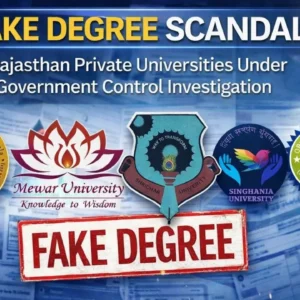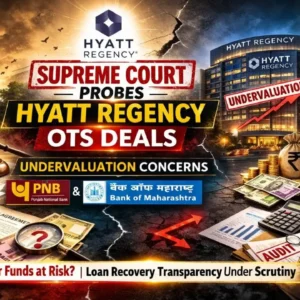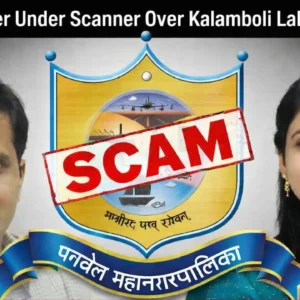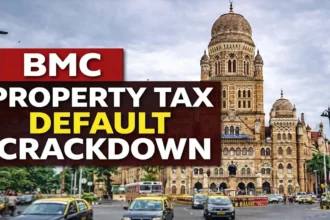Pune GPS Tracker Scam
• Garbage Tracker Sabotaged in Pune
• PMC’s Clean-Up Drive Ends in Dirty Scam
Unmesh Gujarathi
Sprouts News Exclusive
Contact: +91 9322755098
Sprouts News Exclusive
Contact: +91 9322755098
Pune’s ₹15.60 crore GPS-based waste management system collapsed due to internal sabotage by workers and supervisors aiming to evade accountability. GPS bands were discarded, records manipulated, and extortion rackets thrived. Despite initial success, PMC’s administrative failure allowed corruption to flourish, wasting public funds and derailing transparency efforts.
Transparent Waste Management Dream Turns Into a Corruption Nightmare
In an ambitious move, Pune Municipal Corporation (PMC) launched the Integrated Solid Waste Management System (ISWMS) to bring transparency to city cleaning operations. As part of this project, PMC equipped every sanitation worker with GPS tracking bands to monitor their attendance, work routes, and cleaning hours. The aim was simple: ensure that roads and public spaces are properly cleaned, workers are accountable, and supervisors can verify work through real-time data.
Initially, the pilot project rolled out across the Aundh-Baner-Balewadi zone showed promising results. Worker attendance shot up to 80%, cleaning efficiency improved, and supervisors could monitor activities precisely. A detailed report was submitted to then Municipal Commissioner Vikram Kumar, following which PMC approved full-scale implementation across Pune city.
However, just a few months into the project, cracks began to appear—literally and figuratively.
Contents
- Pune GPS Tracker Scam
- • Garbage Tracker Sabotaged in Pune
- • PMC’s Clean-Up Drive Ends in Dirty Scam
- Transparent Waste Management Dream Turns Into a Corruption Nightmare
- Pune GPS Tracker Scam: Workers, Supervisors Sabotage GPS Tracking to Evade Accountability
- Pune GPS Tracker Scam: ₹15.60 Crore Public Funds Down the Drain
- Organized Extortion Racket Flourishes Within PMC System
- ISWMS Had High Expectations, but Collapsed Due to Administrative Apathy
- Also Read: Pratap Sarnaik in Trouble Again as HC Revives Tops Group Scam.
- Senior Officials Acknowledge Systemic Failure
- A Pattern of Administrative Loot: Pune Becomes Case Study for Failed Tech-Driven Governance
Pune GPS Tracker Scam: Workers, Supervisors Sabotage GPS Tracking to Evade Accountability
According to the Sprouts News Investigation Team (SIT), the transparent system faced internal resistance. Sanitation inspectors, supervisors (mukadams), and some workers began undermining the GPS system to continue existing malpractices. Since salary payments were directly linked to actual attendance and work completion, many faced pay cuts for non-performance. Supervisors, who previously manipulated records for personal gain, saw their unofficial earnings dry up.
To sabotage the system, excuses like battery failures, charging issues, explosions, and lost bands were frequently cited. In several cases, functioning GPS bands were discarded entirely. Moreover, certain workers reportedly swapped bands to bypass attendance tracking, allowing them to skip work while still drawing salaries.
An official from the health inspection department admitted to Sprouts News SIT that “a robust online monitoring system was deliberately derailed by internal collusion among workers and supervisors.”
Pune GPS Tracker Scam: ₹15.60 Crore Public Funds Down the Drain
PMC invested approximately ₹15.60 crore to implement the ISWMS system citywide. This included the cost of GPS tracking bands, Radio Frequency Identification (RFID) tags for garbage trucks, real-time data dashboards, and photo-verification systems for public toilet cleanliness and biomedical waste management.
Despite the initial success, PMC’s lack of stringent follow-up allowed the system to collapse. Corrupt networks within the municipal staff worked together to nullify the technology meant to enforce accountability.
“The administration’s indifference has led to gross misuse of public funds,” the Sprouts News Investigation Team (SIT) has learned from multiple internal sources.
Organized Extortion Racket Flourishes Within PMC System
The corruption extends beyond just evading work. According to exclusive SIT findings, contract workers have been forced to pay bribes to retain their jobs. In the Dhankawadi-Sahakarnagar zone, an instance came to light where three contract workers paid ₹70,000 each to a health inspector to regain employment after being dismissed for poor performance. Despite complaints, the inspector denied wrongdoing and was merely transferred to another zone.
Furthermore, local shopkeepers, hotel owners, and business establishments are allegedly coerced into making monthly payments by workers, supervisors, and middlemen operating unofficial collection networks. These extortion rackets reportedly generate lakhs of rupees every month.
ISWMS Had High Expectations, but Collapsed Due to Administrative Apathy
The ISWMS system was designed not just to monitor cleaning staff but also to:
•Track garbage collection trucks via RFID and GPS.
•Monitor quantity and processing of collected waste at garbage processing units.
•Maintain photo records of public toilet sanitation before and after cleaning.
•Supervise biomedical and solid waste processing, biogas production, and other sustainability projects.
•Streamline punitive actions and fines through centralized monitoring.
Had the system been properly enforced, Pune’s waste management could have set a national benchmark in urban cleanliness and transparency.
Also Read: Pratap Sarnaik in Trouble Again as HC Revives Tops Group Scam.
Senior Officials Acknowledge Systemic Failure
While PMC leadership claims efforts are underway to rectify the situation, their own admissions highlight the depth of the failure.
“We will review the system and take corrective measures to ensure proper GPS tracking,” stated Sandeep Kadam, Deputy Commissioner, Solid Waste Management Department.
“ISWMS aimed to bring transparency, but its strict enforcement reduced supervisors’ discretion. We intend to re-implement it strictly,” added Additional Commissioner Prithviraj B.P.
• Financial Snapshot of Pune’s Garbage Management Mess
•Permanent sweepers: 4,122
•Contractual sweepers: 4,929
•Annual cost of contractual staff: ₹150 crore
•Total expenditure on ISWMS project: ₹15.60 crore
A Pattern of Administrative Loot: Pune Becomes Case Study for Failed Tech-Driven Governance
The Sprouts News Investigation Team (SIT) has uncovered how systemic corruption can dismantle even the most well-designed technology-based governance solutions. Pune’s GPS tracking scam in solid waste management echoes a broader pattern seen in multiple municipal bodies across India where transparency tools are systematically sabotaged to protect entrenched corrupt networks.
Unless stricter enforcement, independent audits, and whistleblower protections are instituted, such public-funded projects risk turning into expensive failures, eroding citizen trust and draining public resources.

















